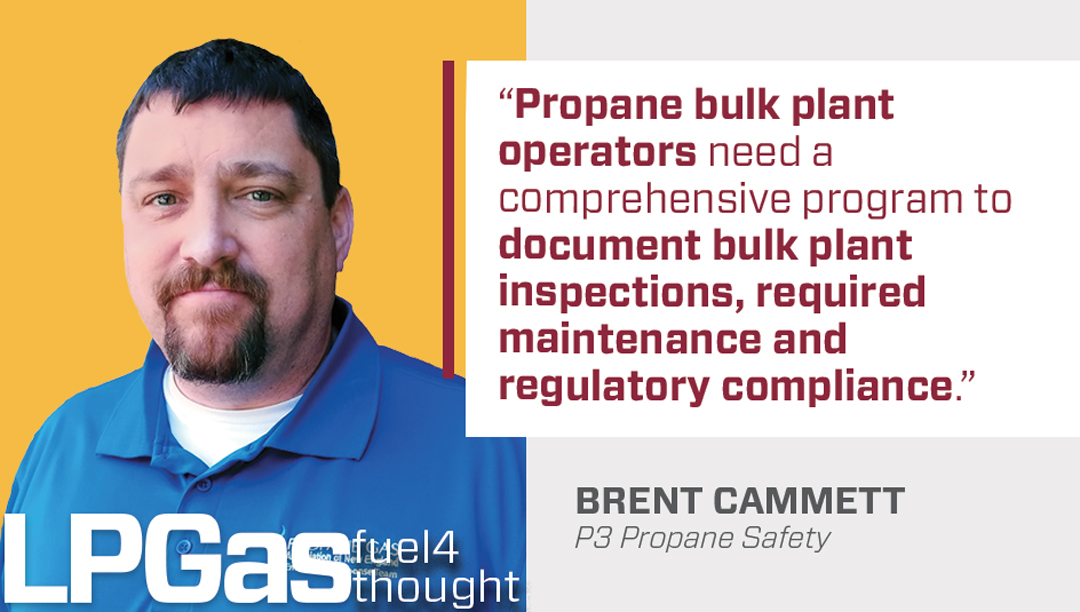Maximizing efficiency for bulk plant inspections
It’s critical to have an inspection and maintenance process that keeps your bulk plants in compliance and your facility and employees safe.
Maintaining regulatory compliance with respect to your bulk plants is a challenge. All systems must be thoroughly inspected, documented and maintained. It takes technical expertise, organization and energy. The possibility of overlooking a safety or maintenance concern at a facility that holds thousands of gallons of hazardous material can be overwhelming if not managed correctly.
Paper or a fillable PDF has been the industry standard for bulk plant inspections. These paper forms are long, tedious and easy to misunderstand.
By using a digital inspection and reporting platform, your company can meet important regulatory compliance requirements more efficiently. The benefits of mobile inspections include:
- Omission-detecting technology catches blank or invalid entries.
- Integrated explanations describe what an entry field is asking.
- Photo documentation allows for visual contributions to written answers.
- Automated reporting aggregates data in a record of the inspection.
- No more worries about damaged or missing paper inspection documents.
Bulk plant inspection
Propane bulk plant operators need a comprehensive program to document bulk plant inspections, required maintenance and regulatory compliance. They need to consider how to minimize and address risks such as fire and personal injury. They should identify potentially unique features of the bulk plant:
- Is your bulk plant a rail facility?
- Do you facilitate retail sales there?
- What does your inspection form look like, and where do you store it?
- How do you track and prioritize preventative maintenance and follow-ups?
Using photos
Digital bulk plant inspections can incorporate photo documentation to aid the field technician in communicating any issues identified during the inspection process with the management team. Issues can be categorized and rectified through a review and resolution process, ensuring no follow-ups slip through the cracks. Your team should document resolutions with new photos.
Bulk plant reporting
Bulk plants are regulated through requirements outlined in chapter 6 of the National Fire Protection Association’s Liquefied Petroleum Gas Code (NFPA 58). If you use a paper process or even an e-form, you have to compile forms manually to generate a completed report. This process becomes even more complicated if you have multiple bulk plants. How much time could you save if the inspections were pushed to a mobile interface that your management teams could review? Do you know the last inspection date of each of your bulk plants? How are you tracking identified follow-ups? Where do you store your bulk plant’s operations and maintenance manual, fire safety analysis and U1A?
Provide real-time feedback
A transparent bulk plant reporting process facilitates potential coaching opportunities with your field inspectors. Nobody is perfect. By communicating in real-time, you can identify training opportunities and provide immediate feedback to your team. This will result in better bulk plant inspections.
Featured homepage image: tttuna/E+/Getty Images
Brent Cammett is the safety and compliance director at P3 Propane Safety. Reach him at brent_cammett@bostonenv.com.

















